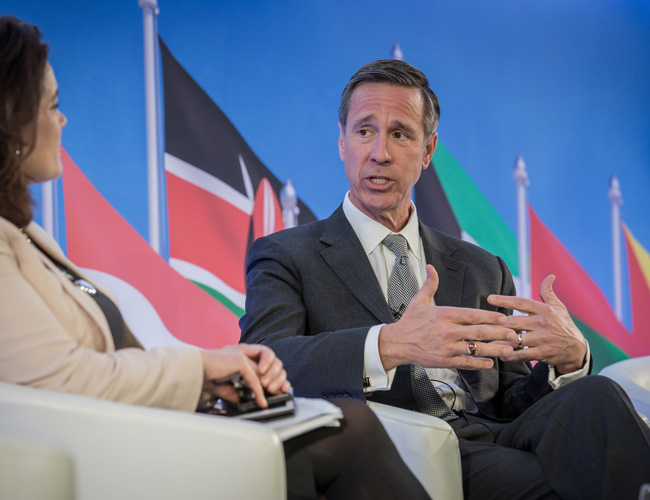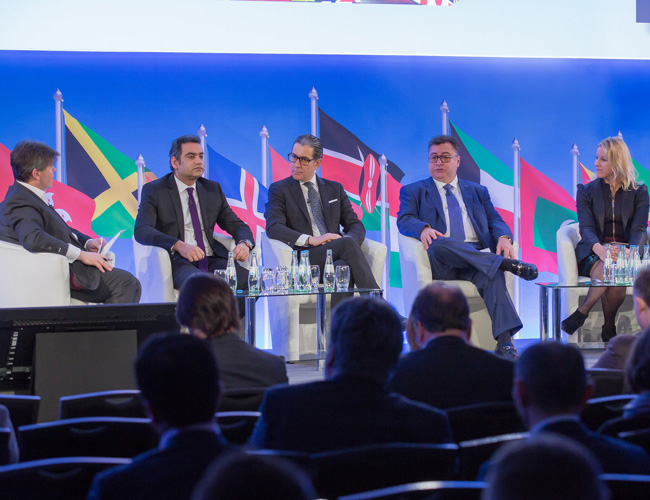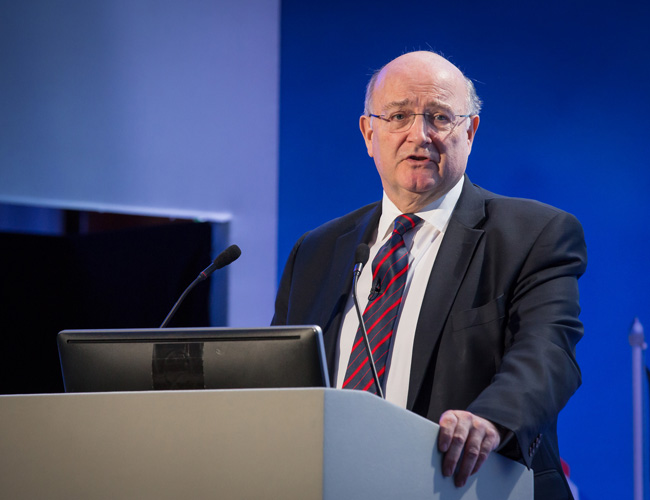IHIF: a 20/20 vision of hospitality's future
More than 2,000 delegates from 80 countries descended on the Hotel InterContinental Berlin in Germany earlier this month for the 20th International Hotel Investment Forum to discuss what the next 20 years hold for the hotel industry. Katherine Price reports
The International Hotel Investment Forum (IHIF) kicked off with the news from the 2017 European Hotel Valuation Index that, for the first time, Germany has taken top place for hotel transaction volume, knocking the UK into second position in 2016.
Roger Bootle, chairman at Capital Economics, provided a positive post-Brexit economic forecast for the UK. Although he predicted inflation to rise, squeezing incomes and thereby having a knock-on effect on the hospitality and tourism sector, he said he believed Britain would "ride Brexit extremely well". In fact, he argued that instability would be a positive for Europe. "The last thing Europe needs now is stability because stability equals stagnation," he said.
On receiving the conference's Lifetime Achievement Award, Marriott International chief executive Arne Sorenson admitted he was kept awake at night by the global wave of nationalism. "The risk for us in the travel business is that even though travel is different to immigration, if people aren't careful about the way they talk about it, they seem to be the same issue," he said. He emphasised the need for the hospitality industry to communicate that foreign guests are welcome.

Google it
AccorHotels chief executive Sébastien Bazin suggested that OTAs such as Airbnb, Expedia and Booking.com, and tech firms like Google, Amazon and Facebook should be the next global hotel group models.
He said AccorHotels had been asset-heavy and labour intensive in the past, but pointed out that none of the successful digital players are, and that Accor needs to become like these companies: asset light.

e also urged hotels to start thinking differently, to look to other industries for inspiration - and most importantly, to not lose guests, but to innovate and offer them what they want. In the past couple of years AccorHotels has shown innovation by launching alternative accommodation models and services with its acquisition of home rental site Onefinestay, French concierge company John Paul and creating the millennial-oriented economy brand Jo&Joe.
Depend on the data
When it comes to innovation, hospitality has a way to go, said Dr Jan Fleck, senior innovation strategist at trend research consultancy Future Candy.
Osama Hirzalla, vice-president of brand marketing and eCommerce Europe at Marriott International, talked about Marriott's launch of TestBed last year, a programme to accelerate tech start-ups that enhance the travel and hospitality experience, enabling businesses to pitch to Marriott, receive advice and guidance, and potentially partner with the company.
He encouraged investors to "open the door" to innovative solutions that start-ups are offering. "They struggle to find the executives, they don't know how to reach out to them," he said, and added that it was a two-way process. "Change how you operate to become relevant because if you don't, you will die. You can't depend on the old practices to win the new generation of customers."
According to Terri Scriven, head of hospitality and tourism at Google, data scientists should be at the heart of hotel innovation. Speaking on a panel about how customers' needs will be met in the future, she said hotels have websites rich in data that they are not using to improve the guest experience. A data scientist role should be a "key, core, respected" position integrated into businesses, rather than a "standalone, reporting function", she urged.
Although Scriven quoted Whitbread, Hilton, MeliÁ¡ and AccorHotels as companies leading the way in data analysis, she added: "Hotel websites leave much to be desired. There's a reason OTAs are winning out."
She emphasised that the focus should be on how to convert website visitors into customers - for example, by using data to customise suggested hotels to stay at, or the overall offer on the site, to each visitor.
"It's not that expensive or time-intensive and you can outsource it," she said, and added that although more than 50% of web use is now mobile, hotel mobile sites are often unresponsive or slow to load and therefore losing valuable custom.
Scriven quoted hotels that research their guests online before check-in as a way to engage with guests and anticipate needs, while Gaurav Bhushan, chief development and investment officer at AccorHotels, added that information about guest preferences needs to be shared across the company - both brands and geographically.
Several panellists, however, underlined that the low-tech way is sometimes the best. Hannes Spanring, chief executive of Meininger Hotels, urged hoteliers not to over-complicate things: sometimes asking guests what their needs are and asking the right questions, can be the best way to meet them.

ilarly, when it comes to engaging with the next generation of hospitality employees, hoteliers need to be talking to staff and students, asking them the right questions and offering workplace solutions to suit them.
Serena von der Heyde, owner of the Georgian House hotel in London, pointed out that there was a need to have a "new perspective" on work flexibility through the generations, and encouraged employers to think outside the box - for example, by looking at websites specialising in women returning to work or people looking for part-time work.
The hotel sector is "haemorrhaging half the talent and skills" by not encouraging mothers back into the workplace, when nearly 60% of the sector's workforce is female," she said. She said her hotel 'buddies up' mothers returning to work with those who have already returned after maternity leave.
Clare Gates, HR director of Meininger Hotels, emphasised that some methods of staff retention could come from the staff themselves: "Don't assume you're going to nail wellness just by putting on a yoga class on Fridays. You have to start talking to your staff on a regular basis and, if you're going to ask them, listen."
Ace idea Chris Penn, formerly managing director of the Ace Hotel London Shoreditch, revealed details of his new Steel Hotels brand, which will focus on wellness and sports performance. By catering for the amateur and corporate wellness market, Penn hopes the brand will become the trusted partner of sports people throughout the UK, focusing on swimming, cycling and running.

e said capital had been forthcoming, but finding the right asset had been the challenge. His ideal property would have around 150 rooms and be within an hour and a half of London. The first stage of the brand would be rural escapes, moving into urban centres later on, and while he expected the average stay to be three days, with professional athlete camp programmes on the horizon, he believed there would be opportunity for extended stays.











